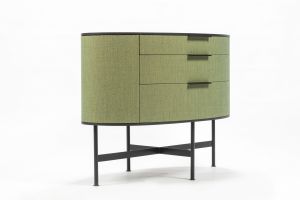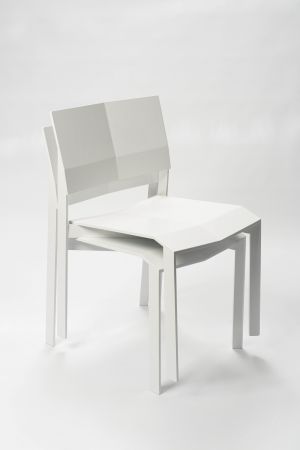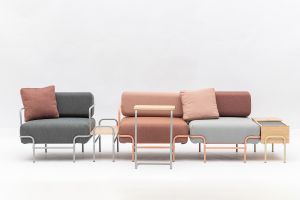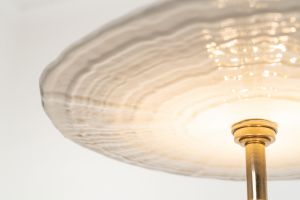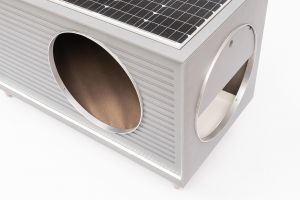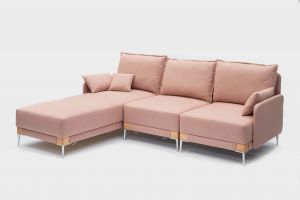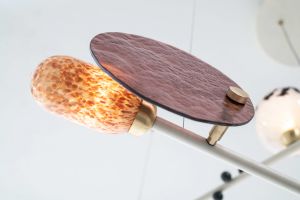The products of the first design LAB programme’s manufacturer-designer pairs launched
The first design LAB incubation programme launched by the Hungarian Fashion & Design Agency in the Spring of 2020 has ended, in the framework of which seven manufacturer-designer pairs received a support framework to create their dreamed products. The six-month-long production process resulted in over 40 unique, world-class products ready for serial production, such as a porcelain glazed lamp collection, a family of office furniture for your comfort, a chair developed to ergonomic perfection and even an intelligent dog house that can fill the gaps in the domestic and international market.
The Hungarian Fashion & Design Agency (HFDA) implemented the design LAB incubation programme as the first stage of the strategic pillar of production development, with the primary goal of promoting successful collaborations between actors in the sector and strengthening and modernizing the background of domestic manufacturing. Additionally, the programme’s aim is to have an impact on production development, and as a result, increasing the industry's competitiveness and stimulating the sector's exports. The implementation was preceded by a roundtable discussion between a jury of industry experts, which revealed a high demand for project-based collaborations in which the professionalism of manufacturers and the creativity of designers are embodied in the form of competitive products. Taking into account the feedback from the sector, the HFDA developed the first design LAB programme in cooperation with the French design institute VIA (Valorisation de l'Innovation dans l'Ameublement).
There was a high volume of interest in the programme and the Speed Dating networking event that preceded the programme, with a total of 43 designer-manufacturer pairs submitting their applications, out of which seven received a support framework to implement their products. The six-month-long development process was monitored by the HFDA through factory visits, and at the end of the programme, each pair presented the pieces of their completed collection. Maturity for serial production was a key consideration point, as this is the aspect that provides real stability for manufacturers and designers.
The LOOP Furniture Family created thanks to the cooperation of Árkossy Bútor Kft. and Máté Horváth, consists of 12 innovative products with unique design and different functions. Sustainability was an important aspect for the pair during the design process, so among other materials, they used recycled and waste materials. Varkoly Fiai Kft. and Máté Horváth created the MATCH modular sofa family, and one of its special features is that the upholstery is made from material made out of PET bottles, and the filling material of the pillows is made from foam waste generated during production. Micro-Licht Lighting Studio collaborated with Miklós Leits to create the Hommage lamp family. During the project, special elements such as a custom-made floodlight disc or the porcelain glaze used on the surfaces of the lamps were present. Rotte Kft. and Sára Kele worked on the development of the Tangens Office Home office furniture family and through the joint work they created 15 different, modularly assembled, airy office furniture pieces. The furniture brings the comfort of a home office design with its pieces.
Balaton Bútor Kft., together with designer Dániel Lakos, created the TILES chair, which is based on a completely new design, based on flat surfaces and polygon forms. The chairs which have been developed to ergonomic perfection have a multi-curved surface. Tilia 2002 Bt. and István Ulmann have created an intelligent dog house that is functional and both aesthetic and self-sufficient at once. The product is called Pet Flat, and its innovative value is undeniable, as the creation is equipped with solar panels, exterior and interior cameras, and concealed lighting, among other things. The starting point of the BERRI lamp family, designed by POSITION Collective and implemented by Úri Lux Kft., was to develop their portfolio, and their inspiration was sourced from the snowberry plant. The product’s uniqueness is due to the individual wood forms used in the construction process, as well as glass pigments.
“It was amazing to see how sustainability, whether it’s thanks to recycled textiles or the processing of PET bottles, has become increasingly important during the process of implementation. During the factory visits, we constantly monitored the steps leading up to the execution of the projects, and after six months, we can safely say that high-quality products ready for serial production have been born, and without exception, in each piece, an excellent combination of functionality and aesthetics can be observed. These unique, Hungarian-designed and manufactured products stand their ground in both domestic and international exhibitions, and representing Hungary, they greatly contribute to strengthening the country's image. - said Zsófia Bata-Jakab, CEO of HFDA. "
The HFDA wants to support not only the development of products, but also their afterlife, and therefore the organisation is constantly working towards displaying excellent works created during the design LAB programme in as many domestic and - if and when the virus situation allows it - international exhibitions and design platforms, and therefore ensuring international export and wide visibility. The works of the pairs participating in the programme are also significant as the VIA, a French design institute, has offered the opportunity for these products to be presented at Paris Design Week, which is an exceptional opportunity. Seeing the works of the pairs, several industry experts offered them the opportunity to take part in workshops, including on capital investment and trademarking, for which negotiations are already in place.
Based on the feedback received, the manufacturer-designer pairs rated the first design LAB programme as a success, both professionally and commercially and would highly recommend the application opportunity to all domestic industry players. The participants also highlighted that they were able to build valuable professional relationships thanks to the programme.
More articles
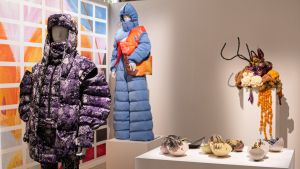
The Hungarian Fashion & Design Agency Continues Its Operations Under the Name Creative Hungary Nonprofit Zrt.
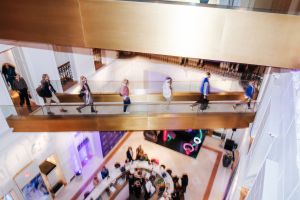
BCEFW Young Talents Designers Featured in the Design POP-UP by ELLE Selection

